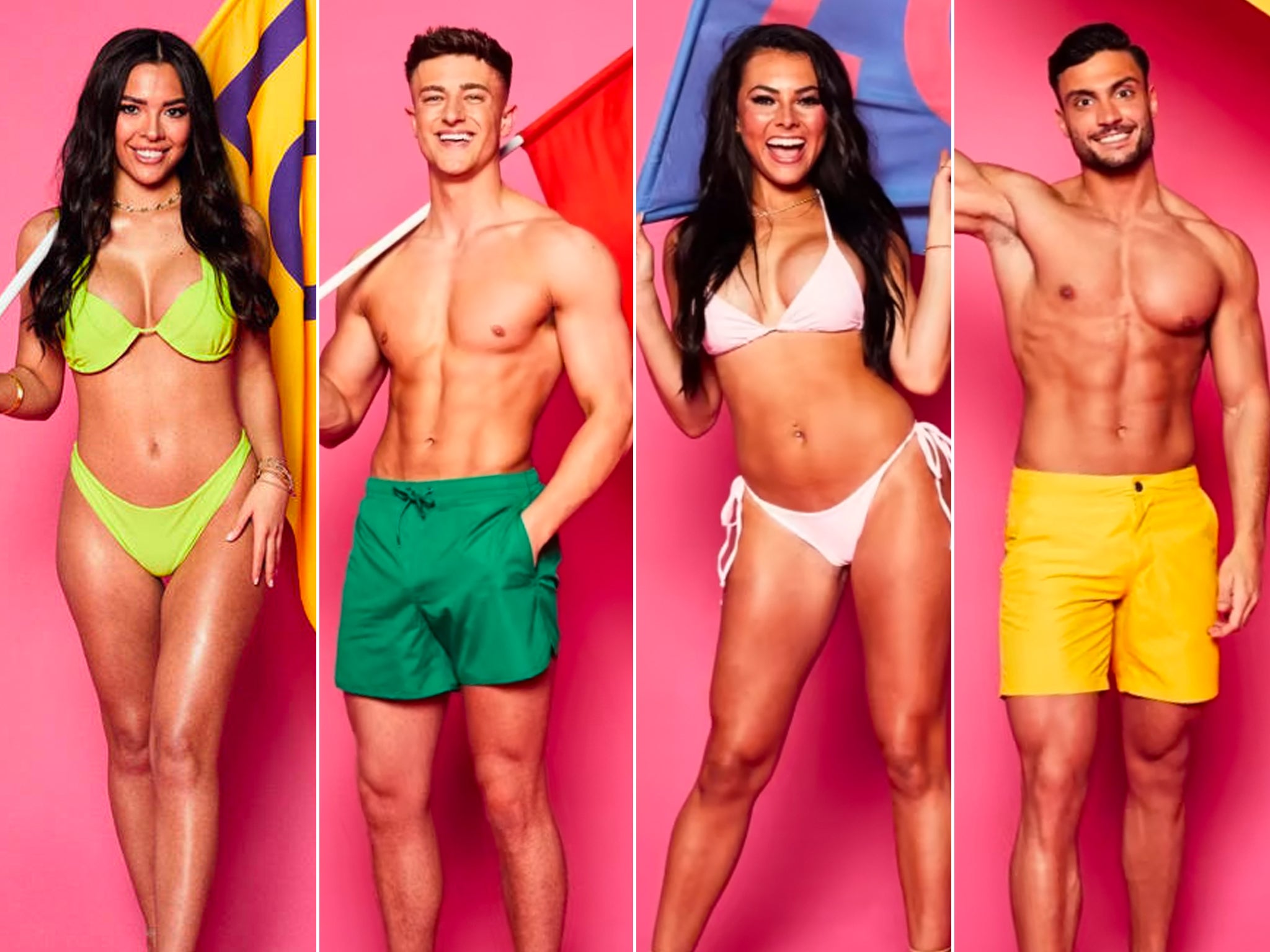The Independent's journalism is supported by our readers. When you purchase through links on our site, we may earn commission.
Why hasn’t Love Island got the memo on body diversity yet?
By excluding larger bodies, the show’s producers are making a statement about which shapes and sizes are worthy of love


As Love Island returns for its eighth series, promising more frolics in the Majorcan sun, there are plenty of viewers who hope that this season regains the cultural momentum of 2019 – when the show drew 3.3 million people to its first episode.
Whether Love Island once more captures the dating and relationship zeitgeist remains to be seen, but one thing seems clear – not all bodies are welcome.
Take a look at the 11 cast members announced – what do you notice? There is no body diversity. Certainly, not a single person is fat or plus size. Every stomach is flat, every thigh is toned. Every woman looks like a straight-size model or influencer (unsurprising, as two are actual models and they’ll all undoubtedly be influencers of some description by the season’s end).
As for the men, they wouldn’t look out of place advertising a swanky gym. But wait! One bloke doesn’t quite have a full six pack – thanks ITV, box ticked.
On Twitter, that hotbed of questionable hot takes, there is praise for the “unedited” nature of the cast photos we’ve seen. All hail ITV, where a smattering of arm hair and skin texture (yes, the natural texture of someone’s actual, covers-their-whole-body skin) has been allowed to slip through the smoothing process. Oh happy day. The bar is really low here, guys.
The makers of Love Island have previously said that including LGBT+ contestants would present “a sort of logistical difficulty” because the Islanders need “an equal choice when coupling up”. So what’s the excuse for the woeful lack of body diversity?
It sends a clear message to viewers that bodies outside of the slim, toned ideal are not desirable and not worthy of representation on a popular dating show. Got a bit more flesh on your waist? Get the hell out. No one’s going to pick you mate, so there’s no point putting you in the villa.
Love Island’s appeal among young people and its almost cult-like status among reality TV shows mean the producers need to be taking concerns about lack of body diversity seriously.
With approximately 1.25 million people in the UK currently battling an eating disorder – 25 per cent of them male – and the NHS reporting a record number of young patients in eating disorder treatment this year, it’s clear that positive representation of all bodies, not just thin, athletic or muscular ones, should be a priority.
The whole premise of Love Island is that a bunch of beautiful, young people get to hook up and fall out in a luxurious Spanish villa. By excluding larger bodies, the show’s producers seem to be making a statement about which shapes and sizes are attractive, accepted and deserving of love.
We are only just starting to heal from the 1990s and 2000s, with their size zero, heroin chic, coffee and cigarettes-for-every-meal obsession. Today, influencers of all shapes and sizes garner impressive followings on social media. We are seeing more discourse around fatphobia and how thinness does not equate to wellness – even from the likes of Victoria Beckham. There is a growing health at every size movement. Love Island could and should do so much better.
To keep up to speed with all the latest opinions and comment, sign up to our free weekly Voices Dispatches newsletter by clicking here
There are progressive aspects of the 2022 show to celebrate, such as the inclusion of the first deaf contestant, 23-year-old Tasha Ghouri, and the heartening increase in racial diversity among the cast. Love Island has previously been criticised for its whiteness and tokenistic approach – and for the sidelining and disregarding of Black female contestants.
ITV will be providing this year’s Islanders with training on how to avoid microaggressions and use of appropriate language around race. This comes after the surfacing of an Instagram post last year, in which 2021 constant Danny Bibby used a racial slur. While Bibby issued an apology, many felt the incident was grossly mishandled by the show, which failed to address the wider issue or take any responsibility for catapulting a white man who publicly used the n-word into dating show prominence.
Love Island is reportedly looking to further improve mental health support for participants, after the suicides of former contestants Sophie Gradon and Mark Thalassitis, and host Caroline Flack.
These are steps firmly in the right direction. They should’ve been in place from day one, season one, episode one. Eight seasons in, and it feels like the show is playing a very slow game of catch up.
Perhaps the next move will be to transform Love Island into a programme that celebrates romance and passion for all bodies – not just those that fit a restrictive and homogenous mould of desirability. You know, so as not to contribute to a toxic culture of hostility and disgust towards different body shapes and sizes, and to champion inclusivity and respect and all that good stuff. I’m not holding my breath though.
